Afromusicology Fall 2017 Diamond Jones, Michael Barrett, Janae Harris, Julisa Robles, Amelo Bacchus
Don't wanna be here? Send us removal request.
Text
Black Music in the Underground Scene
By: Julisa Robles
Rutgers University, among many other universities in the nation, is home to an underground music scene which includes a magnitude of secret, avant-garde basement performances. With the standard fee of five dollars, students and band fans have access to a night filled with bands rocking out and crowd moshing. This string of performances and subculture of music is a white-male dominated field, usually including college age white boys performing very typical western and eurocentric rock music, meaning mostly mono-rhythms and an extreme lack of swing. Personally, these performances tend to get boring and repetitive, so when I found out people of color are becoming more popular on the scene I was very excited to experience more diverse performances and styles of music. Charles Tyler is a young black musician who plays the drums. He performs with his music group, Conundrum, which is composed of a handful of musicians from different ethnic backgrounds.
In terms of content, Charles and his band, Conundrum, make wonderful, jazz inspired jams. One of their more popular songs, Crown Fried (Jam), display characteristics of old-styled jazz and new age funk. Charles' role in performing this song is critical, as he is eliciting many different rhythms and responses from his band members. Charles also completely masters his drum solo in this song, rocking out with cross rhythms and changing up his flow countless times. Charles’ roll in another one of their songs, The Hammer, sets the pace for the band and lead the crowd on an enticing adventure of complex melodies and a really chill, laid back music listening experience. Finally, their song Red Hour really takes the cake. While performing this song, Charles really invites the members to jam on top of different beats and rhythms, constantly changing his flow and melodies.
Charles Tyler is changing the game for basement shows and the underground music scene in the tri-state area. Attending one of his band’s shows always turns out to be a very delightful night and his fans are all waiting for his music to bust into the mainstream scene and for him to become a famed drummer!
https://open.spotify.com/track/5WVrlXJioy1D6b3JmIjZDz

0 notes
Text
Rap Game, Sample Game Crazy
By Diamond Jones
Jay Z, born Sean Carter, is easily considered one of rap’s Greatest of All Time, primarily due to the longevity and lasting relatability/quality of his music. So much in fact, that his latest album, 4:44, managed to go Platinum (one million units sold) within the week of its release despite it having TIDAL exclusivity. From being raised in the Marcy Projects of Brooklyn NY and moonlighting as a drug dealer, to being a near-billionaire, business mogul just as a single individual, Jay Z’s music has definitely been molded by his personality and his growth as an individual is clearly shown through his music, especially with the lyrics of the 4:44 album and the interviews surrounding it.
Jay Z’s music influence is said to have been from his parent’s record collection growing up, having given credit to soul artists (such as Marvin Gaye and Donny Hathaway) for his ability to tune into the soul of music regardless of genre. Samples in rap is no new thing, and contrary to popular belief, can attest to the true genius and originality behind artists and their music. If an artist can use an existing song and make a remake just singing it, it is considered talent. If an artist can birth a completely new genre using just snippets of an existing record, drawing out a completely different meaning and building a new creation using just a few words and piano chords, then it should be recognized as genius. It is important to note the distinction between using a song as a remix, and a song to create a new craft. Jay Z is no stranger to sampling classic (or contemporary) R&B/soul/Blues music in his works, but it is clear that his subject matter and talent is completely different from the artists whose music he uses.
“The Story of OJ”, which was nominated for Record of The Year at the 60th Grammy Awards, is a prime example of taking part of a Blues/Soul song and turning it into a new piece of art. The song is meant to serve as a call to action to inspire Black people to come together and invest their money in building their community up, highlighting the importance of credit and recognizing the fact that no matter where they come from and no matter how far they go, the Black community is still Black, and needs to focus on themselves and their own betterment the way other communities have done. The song also speaks about Jay Z’s history as a drug dealer and how he wished he had invested his money differently from the beginning, andalso pokes fun at Black celebrities who come into money and remove themselves from Blackness, (“I’m not Black, I’m OJ”.....”Okay”). The use of Nina Simone’s “Four Women” and the repetition of “my skin is black, my black skin is yellow” is meant to target the divisiveness of skin tone, and uses the rest of the song to highlight its frivolous nature.
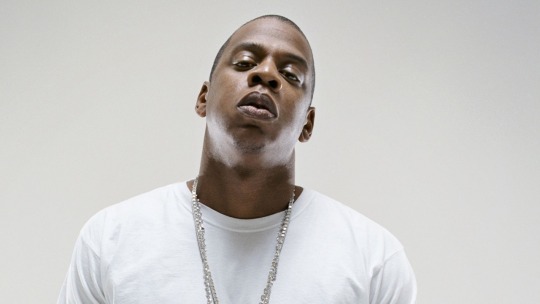
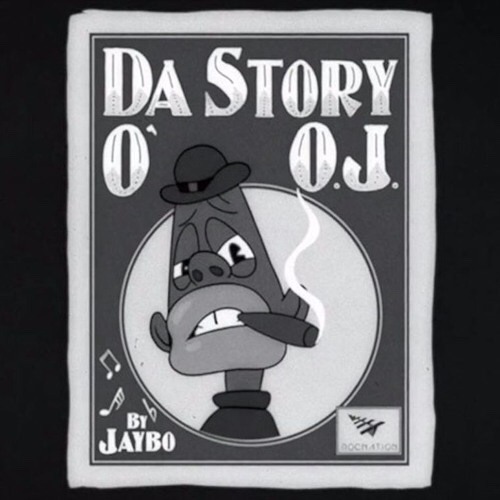
0 notes
Text
Equal Rights: How Oral Sex Became a Fight for Gender Equality in Jamaica
By Michael Barrett
Earlier this year, Dancehall singer Ishawna released a highly controversial song, “Equal Rights,” which was a remix to Ed Sheeran’s “Shape of You.” The song features a catchy melody but attempts to tackle a big stigma in Jamaica: oral sex performed on women. The singer asks her partner to “show me what your tongue can do” and requests that he treat her “like a bottle of Pepsi.”
The song became somewhat of a girl’s anthem. It breaks from the normal themes of dancehall, and tries to promote equality and female empowerment in the bedroom. The premise is simple: if a man wants to receive oral pleasure, he should return the favor to his partner. Ishawna declares the stigma outdated when she sings, “It’s modern times now, boy, relax, it’s OK.”
Immediately, male artists began to release songs in opposition. In “No Eating Rights,” Kiprich tells male listeners to keep their body healthy so “your face don’t replace your waist.” Other artists that expressed their distaste on record include Don Vital, Blackfox, and Blak Ryno.
The controversy around the song is clearly an example of a double standard. Songs like Gage’s “Throat,” which has a chorus that repeats, “Down [into] your throat,” did not receive any backlash. Other songs deal with oral sex in more derogatory ways, usually telling haters to “go suck your mother.” These songs have become so commonplace that they hardly attract any attention.
The stigma around cunnilingus has existed in Dancehall music since its inception. (The stigma exists in the larger Jamaican culture as well.) The act, sometimes called “bowing” or “eating under sheet” was once condemned by artists, whether the person performing oral sex was male or female. Eventually, it became more acceptable for men to receive oral sex, but the stigma remained for women. As the saying goes, Jamaican men love to lie about giving oral sex.
Equal Rights is a great example of how music can shift culture. As soon as the song was released, most of Jamaica was discussing it. While most opinions didn’t change, it moved the ball forward for women and gave women a soundtrack. Music was once used to condemn those who were liberal in the bedroom, so it makes sense that music would eventually be the thing to break down those barriers.
youtube
0 notes
Text
DON’T STOP GET IT GET IT!

By: Janae Harris
I don’t know about other people in my generation, but when I really need to be hyped up or to simply get into a party mood, I turn on Uncle Luke. If someone listens to an Uncle Luke song, I guarantee they won’t be able to remain still and listen to his music at the same time. While the genre of his music falls under hip-hop, Uncle Luke to me, is the definition of party/club music. Some of my personal favorites include, I Wanna Rock, Get Rowdy, and It’s Your Birthday.
Uncle Luke, born as Luther Roderick Campbell, was born in Miami, where he essentially started his career and now takes credit for the creation of hip-hop in the South. However, his career was extremely rocky, in which the sexual content of the lyrics in his songs caused a lot of controversy and eventually lead to legal cases. After recently winning the I Am Hip Hop Icon Award at the BET hip-hop awards, Uncle Luke explains in his speech how after 35 years in the music industry, he had never been honored for an award. He says in the past, he has been kicked off stages because they said he was doing “booty music,” and claimed that his music wasn’t hip-hop. He then would have to take all his money and go fight in the supreme court, literally for freedom of speech! However, he set out his goal to creating hip-hop in the south and making it the “hottest music” anyone had ever heard. After Uncle Luke’s victory against the supreme court, him and 2 Live Crew’s album went on to be the first CD to have the “parental advisory” sticker on the cover, which essentially paved the way for other rapper’s freedom of speech.
Although Uncle Luke has not previously been recognized for his music, he undoubtedly has influenced other artist in their music. One popular song released in 2013 by French Montana, Lil Wayne, Rick Ross, and Drake, titled, Pop That, was actually sampled from Uncle Luke’s song I Wanna Rock.The music videos are also actually very similar, with girls dancing in their bikini’s by a pool.
In its hip hop nature, Uncle Luke’s music possesses characteristics from the Africanisms in music. One common Africanism that he uses is call and response. He uses this mainly to communicate with the crowd, but it adds to the intensity and high energy of his music. As in the title, one of my favorite call and response phrases from Uncle Luke is when he says “DON’T STOP” and the crowd responds “GET IT GET IT!” Another Africanism he uses is repetition, where he will repeat a certain phrase multiple times, exemplified in his song It’s Your Birthday. He’ll also use pitch inflection, where he will change his voice, almost in a grunting way to express whatever he is saying. Uncle Luke’s music and his ability to get a crowd hyped up and ready to dance will hopefully forever live on and continue to inspire artists.
youtube
0 notes
Text
Ah Wah Yuh Seh? Come to de Dancehall and Buss a Lil Wine Pon Dem!
by: Amelo Bacchus

It wouldn’t be a party without some reggae/dancehall infusion. Dancehall with its connection to afro beats from the mother land, is sure to get your body moving. One artist that is keeping everyone moving to the beat is none other than Kranium. Kranium was born Kemar Donaldson on January 11, 1993 in Montego Bay, Jamaica. In his teens, he moved to Miami where he got closer to his uncle who was a dance hall singer by the name of Screw Driver. His uncle was more of a mentor and it was from him that Kranium learned a lot about reggae.
Kranium’s debut song “No Body has to Know” drew a lot positive attention. Many record labels began to show interest. Eventually, Kranium decided to sign with Atlantic records. This made him one of the few reggae artists to signed with a major record label. Among those we have, are Wayne Wonder and Sean Paul.
My favorite song by Kranium right now—I literally have the song on repeat—is “Can’t Believe” (ft. Ty Dolla $ign & Wizkid). The song simply gives me life! The first time I heard it, I knew the song was sampled from a classic reggae song by the artist Dennis Brown called “Have You Ever Been in Love.” Coming from the Caribbean, my family always plays this song during parties or get-togethers. It has a beautiful sway to it.
My favorite part of “Can’t Believe” is Ty Dolla $ign’s part. I think the reason for this is because he doesn’t necessarily have a reggae background. Ty Dolla $ign style lies more in rap/hip-hop. But he killed it in his verse. He was giving me vibes that many reggae and afro beats artists like Wizkid, for example, give in their songs. It’s the way the three artists, Kranium, Ty Dolla $ign, and Wizkid say certain lines that makes this song golden! The only major issue I had with song was the music video.
Side Bar: Don’t even get me started on how women are generally treated in music videos. *rolls eyes*
But all in all, the song was fun, sexy, and cool. The takeaway I get from it is the following; Guys, if you do not treat your girl right, another man will.
Essentially, some other dude will be singing the hook of this song;
“Him can't believe I, can't believe I Take him girl away from him oh God Can't believe I, him can't believe I Take him girl away from him oh God”
Check out the original song by Dennis Brown “Have You Ever Been in Love” first to really appreciate the roots of the song by Kranium. And then make your way to “Can’t Believe.” As mentioned, I don’t quite like the music video. But no worries, I found this lit dance video that in my opinion should have been the official video. This song will definitely be on repeat, enjoy!
Have You Ever Been in Love - Dennis Brown
youtube
Can’t Believe - Kranium (ft. Ty Dolla $ign & Wizkid)
youtube
0 notes
Photo
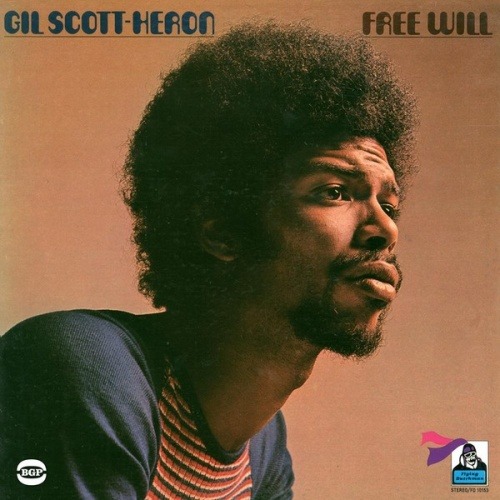
The Revolution Will Not Be Televised
by: Julisa Robles
Gil Scott-Heron was born in April 1st, 1949, in Chicago, Illinois. He grew to become a jazz artist, making music mostly about political issues, racial tensions, and social dilemmas. Scott-Heron debuted his music in 1970 with an LP named Small Talk at 125th and Lenox, which discussed the lack of depth in many black activist leaders and voiced his disapproval of consumerism. His music relied heavily on the use of drums, most specifically the congas and bongo drums. One of Scott-Heron’s most popular pieces, The Revolution Will Not Be Televised, discuss how the black revolution in America will not be streamed through television, but rather will happen in the real world, by real people affected by systemic oppression. Scott-Heron referenced a plethora of cultural items of the time that were being covered in the media and included in many American’s day to day lives. This piece became a sort of theme song to the Black Power movement that was occurring in America during the 1970’s.
Scott-Heron would refer to himself as a “bluesologist,” which he considered a “scientist concerned with blues.” This is evident in his music, in which one can see traces of blues and the themes of blues in the music he produced. Scott-Heron has also been dubbed as the creator of rap music and modern R&B as he used many funk undertones and would also perform spoken word over his music. Many people use his music today as samples for there own songs, as well as use his words in their music. Scott-Heron was a big inspiration to many black people and modern black artists who still look up to him as an artist today.
In all, Gil Scott-Heron was a very important influence in black music and the Black Power movement in America. His music gave people a voice and helped conduct a message that people wanted to relate to the world. Scott-Heron passed away in 2011, and ended up being awarded a posthumous Grammy Award in 2012 for his Lifetime Achievements.
https://www.youtube.com/watch?v=qGaoXAwl9kw
0 notes
Text
Kartel: In Jail, but Still Recording
by: Michael Barrett
Fans of Vybz Kartel around the world assumed that his incarceration would mark the end of the reign of Gaza. Convicted of a murder charge, the prospect of Kartel ever being a DJ booth ever again was near zero. Despite this bleak outlook, Kartel managed to turn a terrible situation into an opportunity to secure his position as the greatest Jamaican artist of our time.
Adija Palmer is a mortal man, but Vybz Kartel is a timeless legend. His legend status does not stem from his success – it stems from his persona. In every interview, Vybz Kartel speaks about himself in the third person. In this way, he separates his artistic presence from his physical self.
Despite Adija Palmer being incarcerated for murder, Vybz Kartel is freer than ever. Kartel continues to release music multiple times a month, each of them reaching the top of the Dancehall charts. In sound-clashes, Kartel dubs continue to be the nuclear option, and his features catapult songs into guaranteed rotation on radio and in clubs.
Kartel is a legend, but it is yet to be determined whether his is an angel or demon. In many ways, he occupies both categories. His discography includes songs like “Closed Casket,” which graphically details the ways in which he imagines mutilating his victim beyond recognition. On the other hand, he has songs like “Protect Me,” which begins with a bible verse: “Do not be envious of evil men / Nor desire to be with them / For their hearts devise violence / And their tongues talk of troublemaking.”
The sheer magnitude of Kartel’s work also elevates him to legend status. There is no topic that has not been explored by the deejay. He has proven himself as a singer and as a rapper, and he can perform over reggae instrumentals as well as hardcore dancehall instrumentals. As he once said in an interview, he records music everyday, and it seems that his incarceration has not slowed him down.
Kartel offers us a few lessons. First, we should aim to create an image of ourselves that will outlast our temporary physical form. In his way, we can live on forever. Second, when faced with impossible situations, we should seek to turn them into priceless opportunities. Lastly, in whatever work we do, we should aim to be the best, work hard at our craft every day, and be so versatile that no one can ever box us into a limited category. In this way, we can all be Vybz Kartel.
youtube
0 notes
Text
R&B and Love Songs: Part 2
By Diamond Jones
Contemporary male R&B groups weren’t the only ones creating creatively worded, raunchy love songs. Female artists, whether solo or in groups, were also frequently releasing songs that eroticized love. Mariah Carey, a woman considered to be historically great due to her vocal range only comparable to the likes of the late Minnie Riperton, can be considered the perfect example of a woman who knows what she wants and likes to sing about it.
Carey’s music features a heavy piano influence, due to her being raised taking frequent piano lessons. Her style of music is influenced by gospel, hip hop, soul, and pop music, and she takes inspiration from classic R&B, blues, and soul artists such as Gladys Knight, Billie Holiday, and Aretha Franklin. The image of the overly confident and under-dressed Mariah Carey we all know today came from her efforts to distance herself from appearing as an “airbrushed and overblown” version of the artists she took inspiration from. However difficult her breakout into the music industry might have been, she found ways to overcome and show exactly what an asset she was.
Most of Mariah’s songs focus around love in a bubblegum romance kind of fashion, with the most stark exception being “Touch My Body”, released in 2008 on her eleventh studio album, E=MC^2. “Touch My Body” describes a “rendezvous” between an adoring man and the singer that is meant to be kept as an erotic secret. The singer pplayfully asks her mystery lover to “touch my body”, “throw me on the floor”, “wrestle me around”, and to “play with me some more”. The upbeat piano keys and high and non-sultry tone of singing is meant to make the song seem less explicit than the lyrics state, which also added to the song’s popularity (especially among those who had little to no understanding of erotic play). Mariah’s vocal range is also shown off throughout the song, between her melodic ad libs and her high note displays.

0 notes
Text
Got Soul?
by Amelo Bcchus
Whoever said the soul of the 50’s and 60’s died well, I got news for you! It lives on! With artists like Leon Bridges, the legends of Soul music are smiling in their graves applauding in approval. Born Todd Michael Bridges on July 13, 1989 in Atlanta, Bridges was actually raised in Fort Worth, Texas. Although he is established as a well-known Soul musician, Bridges said he didn’t know much about Soul. His mother was very religious and didn’t allow him to listen to non-Christian music as a child. Nevertheless, he said that did not stop him from turning on the radio.
While he did listen to the radio, Bridges said he didn’t really get into Soul music until he stumbled upon Sam Cooke when he was 20 years old. He felt a connection to it immediately. Before his career went gold, he started by playing open-mic nights around Fort Worth while he worked as dishwasher until he was signed by Columbia Records in 2014. Not only is he a singer, he is also a songwriter, multi-instrumentalist, and a record producer. Bridges also dabbles in genres like R&B, gospel, blues, and indie. His song “Lisa Sawyer” was inspired by a conversation with his mother which first helped defined his style of music. Fun fact, Bridges was featured on The Birth of a Nation (2016) soundtrack in the song “On My Own,” with Christian Rap artist, Lacrae.
I for one enjoy everything about Bridges’ image. You can always find him dressed to the nines in vintage clothing. He gives me 50’s and 60’s fashion vibes. His “costume” so to speak, matches the way he sounds. As someone who is a big fan of Sam Cooke and Otis Redding, I am so happy that today in the contemporary world someone is continuing the torch.
Bridges told Face Culture in an interview; “A lot of contemporary music is great, but I like going back to where it started—when it was simple.”
This is exactly why Soul music is one of my favorite genres. The lyrics were simple, but so powerful! The way in which an artist said one word could can carry a host of meanings. It was not “I love you,” but “Baby, oooh I loooooove yooouuu.” I think Leon Bridges will explain it best. That said, check out a few of my favorite songs by him below.
Prepare your soul, for the genius that is to come!

Better Man by Leon Bridges
youtube
River by Leon Bridges
youtube
Twistin’ & Groovin” by Leon Briges
(He sounds even better live ^_^)
youtube
Lisa Sawyer by Leon Bridges (the lyrics are so moving, so nostalgic!)
youtube
0 notes
Text
It’s All About The Black Girl Magic
By: Janae Harris
Janelle Monae exemplifies what Black Girl Magic is. She brings life to any performance and has the ability to capture the attention of anyone watching. She is literally a ball of energy and her performances are always extremely entertaining. However, her mission as an artist is not simply for pure entertainment. The thing that makes Janelle so amazing, is that everything she does, from the clothes that she wears, to her performances, to the lyrics in her songs, it all has a deeper meaning than what is seen on the surface. Janelle wants black women to realize their power and their magic and she portrays this message through her art of music.
Even though, in my personal opinion, Janelle does a great job of singing and performing, she says she is hesitant to call herself a singer; she says that she just likes to communicate, and if it takes more than singing to get that message across, she would be willing to take a different route. This was exemplified in her song Q.U.E.E.N. where she added a rap verse at the end of the song to communicate a powerful message. She wrote this song to communicate to those who are marginalized and ostracized and feel that they want to give up because they are not accepted by society. In an interview at Fuse HQ, Janelle explains what the acronym stands for, with “Q” representing the queer community, “U” representing the untouchables, “E” for emigrant, the other “E” for the excommunicated, and “N” for those labeled “Negroid.”
Although Janelle’s music is classified as R&B and Soul, one can hear her influences from funk music as well as Jazz. In an interview with Janelle Monae, she talks about her love for James Brown and funky music in general. She says that a lot of the music that is out now wasn’t really inspiring her, so she went back into time and studied certain artists like James Brown who exemplified the genres of punk, rock, and soul and used them to influence her. One can also hear influences from artists like Prince, who was actually featured on a song titled, Givin Em What They Love on her 2013 album, The Electric Lady. Janelle also incorporates a lot of Jazz into her music and a great example of this is in her song titled Suite V: Electric Overture, where in part of the song, she featured a big band, where one can hear multiple instruments being played together. Janelle Monae is an extremely beautiful, powerful, and talented artist who deserves to be celebrated for showing the world her Black Girl Magic.
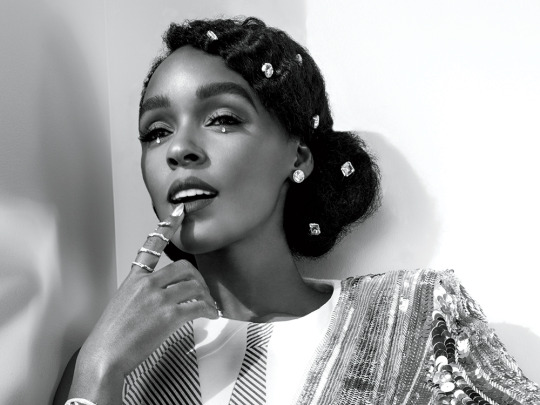
youtube
youtube
0 notes
Photo

Hood Love On the Rise
by Julisa Robles
Radric Delantic Davis, otherwise known as Gucci Mane, is one of 2017’s most popular trap music artists. In his two new albums, Droptopwop and Mr. Davis, Gucci Mane sings about many of the typical themes in rap music: drugs, sex, and hustling. However, in some of his newer releases like We Ride and Miss My Woe, Gucci takes on a lesser popularized topic in rap music: love and relationships. Common in many songs produced by black artists over the past few centuries and a very heavy motif in blues music, Gucci resurrects this theme in his rap songs, singing about his new wife Keyshia Ka’oir as well as his love for his incarcerated and deceased friends.
To contrast his facade of being a “hard” rapper, Gucci Mane is very open about his emotions and commitments to his loved ones which keeps alive one of the main themes of the blues, and many other black made genres, in trap music. It isn’t exactly not revolutionary, as love has become a very popular as a song theme in rap, it is very refreshing to see a rap singer being very vulnerable and raw with his emotions through his lyrics.
Nobody else can do it
Quite like I do
All my kisses
And my lovin'
But ain't nobody
Better than us
-We Ride, Gucci Mane ft. Monica
https://www.youtube.com/watch?v=8poYFtvX0QA
0 notes
Text
YOU GON’ LEARN SOME JAZZ TODAY by Masego
Written by Amelo Bacchus
Combining the elements of Jazz, Hip Hop, Trap, and Electronic, Masego creates a fresh new twist to the main stream music of modern day music—it is a genre referred to as TrapHouseJazz. Born Micah Davis on June 8th in 1993 to Jamaican father and an American mother Masego, grew up singing and performing in his local church—similarly to that of many legendary artists of the Jazz and Blues era. His stage name “Masego” translates to Blessings from Tswana, a Bantu tribe found in Botswana and South Africa.
“YOU GON’ LEARN SOME JAZZ TODAY” is one of my favorite songs due the effortless fusion of the two genres, Jazz and Hip Hop. Masego utilized key elements of Jazz like adlibs and improvising in all, if not, most of his songs.
The Saxophone is often the star in Masego’s songs and it is in fact, one of many instruments he plays. Masego even boasts about this in is other hit song, “I DO EVERYTHING!” His 2016 mixtape, Lose Thoughts and his 2016 album, The Pink Polo EP demonstrates his knowledge of Jazz and the influence that Jazz continues to have on his artistic ability. After listening to his music, it easy to see he has a natural talent for creating art. He is indeed the 21st century Jazz craze.
So, fasten your seatbelt and feasts thine eyes and ears on the following songs below, because Masego is bringing Jazz back baby! Ayyee! Enjoy!
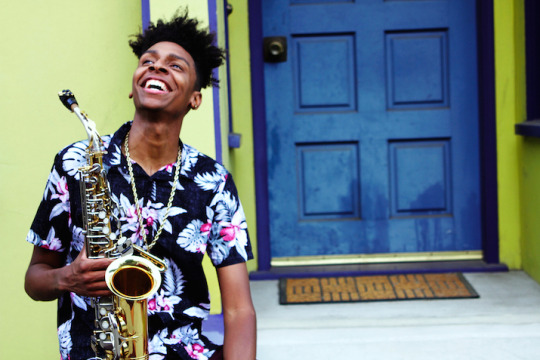
YOU GON’ LEARN SOME JAZZ TODAY by Masego
youtube
Masego- Small Talk (TrapScat T0 Cali)
youtube
Masego & Fkj - Tadow
youtube
0 notes
Text
R&B and “Love” Songs - Part 1
By Diamond Jones
Contemporary R&B differs from its predecessor “Classic” R&B as far as music content, style of delivery, and accompaniment is concerned. While original R&B, formed in the 1940’s, was used as a synonym of sorts to music inspired heavily by blues/gospel/jazz/ragtime music and generally involved a live instrument of some sort, contemporary R&B came into popularity in the 1980’s with the creation of automated beats and instruments and was inspired by soul/hip hop/funk/pop music. Contemporary R&B also heavily focused on romance in a heavily eroticized manner as its subject material, while classic/original R&B targeted subjects similar to the blues where they sang about daily life (whether it involved romance or not).
112 can be considered one of the male R&B groups of the 90’s that one is more likely to forget, compared to groups like Jagged Edge or Boyz II Men. However, the group itself played a significant role during the successful era of Bad Boy Records in the 1990’s. Formed in 1993, the group “Forte” auditioned for Diddy outside Club 112 in Atlanta. The club ended up being the group’s namesake, bringing forth the 112 group that topped the charts. 112’s debut album, 112, was released in 1996, reached top 5 on Billboard’s Top R&B/Hip Hop Albums chart. The group is most known for their works with other Bad Boy artists as features on songs with The Notorious BIG, Diddy, and Mase. “I’ll Be Missing You”, featuring Diddy and Faith Evans can be referenced as 112’s most popular song, reaching double platinum in the two months after it was released, partially attributed to the fact that it was created in memory of Biggie who had been murdered earlier that year. As far as 112’s solo music, “Peaches and Cream” or “Dance With Me” (released on the same album as “I’ll Be Missing You”, 112’s final album with Bad Boy Records titled Part III) can be considered their most known, and highest ranking songs.
“Peaches and Cream”, a song that went on to earn a Grammy nomination, features an “electro” element whereas all the “instruments” were some form of sound effects rather than having some kind of live instrument. The song demonstrates aspects of contemporary R&B’s eroticized subject matter, whereas “peaches and cream” alludes to sexual activities as a metaphor, and other lyrics are much more explicit in regards to what exactly is implied. Due to the fact that it was sang by a group, the song involves call and response as a method of harmonizing. It also heavily involves repetition and ad libbing, along with some minor pitch inflection, especially during the chorus and ending of the song.
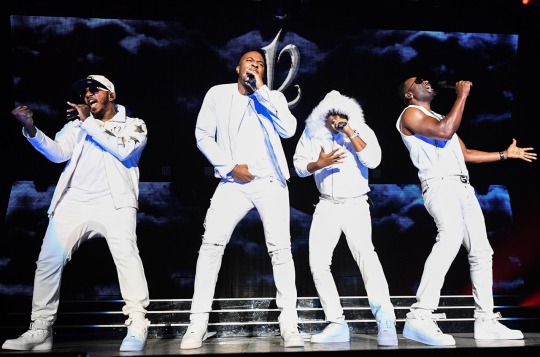
(“Peaches and Cream” video posted below)
0 notes

